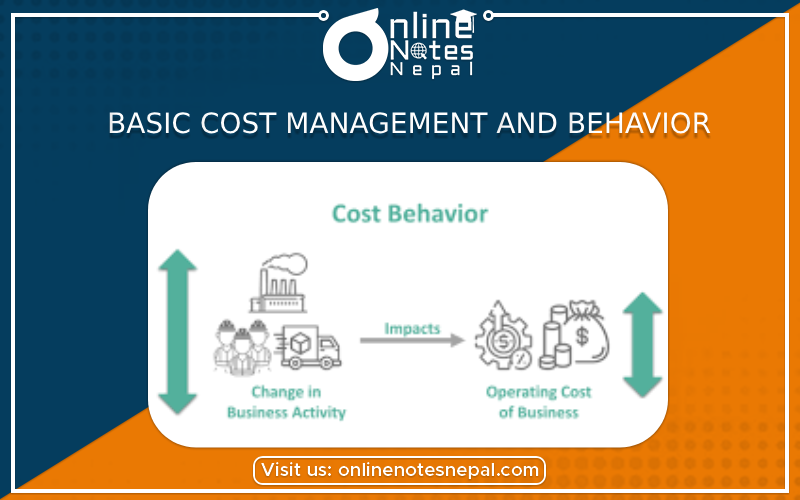Published by: Anu Poudeli
Published date: 10 Jul 2023

Cost management is the process of planning, estimating, budgeting, tracking, and controlling expenditures in order to accomplish an organization's financial objectives. It entails recognizing, assessing, and managing expenses over the course of a project, product, or service's lifespan. Here are some basic cost management concepts to consider:
1. Cost Estimetion : Cost estimation is the process of anticipating the costs associated with a project or activity. It is usually done during the planning phase and aids in the creation of a budget. For cost estimation, several strategies such as analogies, expert opinion, and parametric models can be employed.
2. Cost Budgeting : Cost budgeting is the process of allocating predicted expenses to various activities or work packages. It entails dividing the whole project budget into smaller components and allocating expenditures to individual tasks or resources.
3.Cost Control: The goal of cost control is to monitor and manage costs during project execution to guarantee that they remain within the budgeted amount. It entails comparing actual expenditures to anticipated prices, discovering variances, and taking corrective steps as needed.
4.Cost variation: The difference between the anticipated cost and the actual cost incurred for a specific activity or project is referred to as cost variation. A positive variance implies that the actual cost was less than the projected cost, whereas a negative variance indicates that the actual cost was greater than the anticipated cost.
5.Cost-Effectiveness Analysis: A cost-effectiveness analysis compares several alternatives or options based on their costs and advantages. It aids in selecting the most cost-effective method for achieving the required results.
Cost Management's Behavioral components:
In addition to the technical components, cost management entails understanding and managing the behavioral aspects that drive cost-related decisions. Consider the following crucial behavioral aspects:
1.Human conduct: People's conduct can influence cost-cutting decisions. Individual attitudes, motivations, and incentives, for example, may influence their propensity to comply to cost constraints or give cost-cutting proposals. Understanding human behavior and tackling motivational variables might help employees become more cost-conscious.
2.Organizational Culture: Organizational culture is important in cost management. Effective cost management strategies are more likely in a culture that emphasizes cost consciousness and accountability. It is critical to create a culture that emphasizes cost control and encourages people to seek out cost-cutting options.
3.Communication and Training: Promoting cost-cutting practices requires effective communication and training. Employees should be taught on the necessity of cost management, given the required tools and skills, and encouraged to provide cost-cutting ideas and proposals.
4. Performance Evaluation : Performance evaluation and reward systems can have an impact on cost management behavior. Organizations can engage employees to actively participate in cost management efforts by linking performance metrics and incentives with cost-saving targets.
5.Continuous Improvement: Cost management is an ongoing activity, and firms should look for ways to cut costs and improve processes on a regular basis. Promoting a culture of continuous improvement can create a proactive approach to cost management, resulting in long-term cost reductions.
Overall, understanding basic cost management principles and taking behavioral factors into account can help firms efficiently manage expenses and achieve their financial goals.